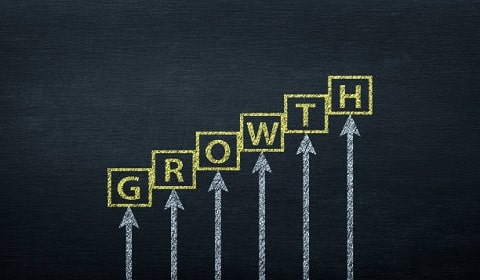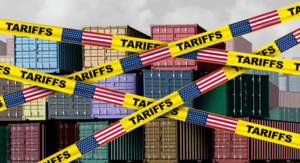
Role of Capital Investment in Economic Growth
The Role of capital investment in economic growth is paramount, serving as a catalyst for prosperity and development in diverse economies. Capital investment, encompassing expenditures on physical assets and infrastructure, plays a pivotal role in fostering productivity, innovation, and job creation.
As nations strive for sustainable economic development, strategic allocation of resources towards capital-intensive projects becomes instrumental. This comprehensive approach not only enhances the production capacity but also propels technological advancements, thereby contributing to a robust and resilient economic landscape.
In this intricate interplay between capital investment and growth, the dynamics shape the trajectory of nations on the global stage.
Table of Contents
Role of Capital Investment in Economic Growth
The heartbeat of economic growth lies in capital investment, a cornerstone that propels innovation, productivity, and job creation. Picture it as a financial boost injected into businesses and infrastructure, paving the way for expansion, technological advancements, and heightened efficiency. The role of capital investment in economic growth cannot be overstated.
This dynamic flow of capital doesn’t just spark economic activity; it cultivates an atmosphere ripe for entrepreneurship. As businesses flourish, they become engines of job creation, elevating living standards. The ripple effect of sustained capital investment forms the bedrock of lasting economic growth, positioning nations to thrive and stand tall in the global landscape.
The symbiotic relationship between capital investment and economic growth is evident as investments fuel the engines of progress, allowing societies to harness their full potential and remain competitive on the world stage.
In this article, we will delve into the intricacies of how capital investment contributes to economic growth through a comprehensive exploration of key points.
1. Infrastructure Development
One of the primary ways capital investment fuels economic growth is through infrastructure development. Investments in roads, bridges, airports, and other essential facilities enhance connectivity, reduce transportation costs, and create a conducive environment for businesses to flourish.
The role of capital investment in economic growth becomes evident in this context as these investments lay the foundation for sustained development. According to the World Economic Forum, every dollar invested in infrastructure results in an economic output of approximately $3.20 in the long term. For example, the massive infrastructure projects undertaken in China over the past decades have significantly contributed to its rapid economic growth.
The construction of high-speed railways and extensive road networks has not only facilitated efficient transportation but also spurred economic activities across various sectors.
2. Technology Advancements
Capital investment plays a crucial role in economic growth, complementing the significance of research and development (R&D) and technological innovation. Countries that strategically allocate resources towards advancing their technological capabilities and simultaneously invest in capital-intensive projects often experience higher productivity and enhanced competitiveness.
According to data from the World Intellectual Property Organization, countries with higher R&D spending as a percentage of GDP tend to have higher GDP growth rates. South Korea stands as a compelling example of how the strategic combination of capital investment and technology-focused initiatives can transform a nation.
Its focus on technology-intensive industries, coupled with substantial R&D investments and capital infusion, has propelled South Korea to become a global technology hub, with companies like Samsung and LG leading the charge.
3. Human Capital Formation
Education and skill development are crucial components of economic growth, and capital investment in these areas pays substantial dividends. The role of capital investment in economic growth becomes evident when considering the significant impact it has on enhancing education and skill development.
A well-educated and skilled workforce contributes to increased labor productivity, fostering innovation and entrepreneurship. According to the World Bank, a one-year increase in the average years of schooling for a country’s population can lead to an increase in GDP per capita by 9%.
Finland’s emphasis on education and continuous investment in its human capital has played a pivotal role in its economic success. The country consistently ranks high in global education indices and boasts a highly skilled workforce, contributing significantly to its economic growth.
4. Increased Productivity and Efficiency
Capital investment often leads to the adoption of new technologies and improved production processes, resulting in increased productivity and efficiency. This, in turn, contributes to economic growth. The role of capital investment in economic growth is crucial, as it facilitates the infusion of funds into businesses for acquiring advanced machinery and automation.
Data from the Organization for Economic Cooperation and Development (OECD) reveals a positive correlation between capital intensity and labor productivity. Germany’s manufacturing sector is a testament to the impact of capital investment on productivity.
The country’s commitment to advanced machinery and automation has made its manufacturing processes highly efficient, contributing substantially to its economic prowess.
5. Job Creation
Capital investment plays a crucial role in economic growth by providing the necessary financial support for businesses to expand and new enterprises to emerge. This influx of capital not only stimulates economic activity and job creation but also strengthens the foundation for sustained growth.
As businesses receive the necessary funds for expansion, they can invest in technology, infrastructure, and human resources, leading to increased productivity and efficiency. In turn, this contributes to the overall development of the economy.
According to the International Labor Organization, investing in labor-intensive sectors can have a direct and immediate impact on job creation, demonstrating the integral connection between capital investment and employment opportunities.
Brazil’s experience underscores this relationship, as government initiatives and private investments in sectors such as agriculture and manufacturing have not only led to significant job creation but also fostered the nation’s economic development.
6. Fostering Entrepreneurship
Access to capital is crucial for entrepreneurs and small businesses to thrive. Capital investment, through avenues such as venture capital and angel investors, provides the necessary financial support for innovative startups.
This fosters entrepreneurship, driving economic growth by introducing new ideas and solutions to the market. The role of capital investment in economic growth is undeniable, as it not only fuels entrepreneurial endeavors but also contributes to the overall expansion of industries and job creation.
The United States, with its robust venture capital ecosystem, exemplifies the positive impact of capital investment on entrepreneurship. Silicon Valley, fueled by significant capital investments, has been a hotbed for technological innovation and has played a pivotal role in shaping the global tech landscape.
7. Global Competitiveness
Nations that strategically allocate capital to enhance their competitiveness on the global stage often experience sustained economic growth. The Global Competitiveness Index by the World Economic Forum indicates a strong correlation between a country’s competitiveness and its ability to attract capital investments, highlighting the pivotal role of capital investment in fostering economic development.
A competitive economy attracts foreign direct investment (FDI), further boosting economic growth. Singapore’s success story underscores the importance of global competitiveness. Through prudent fiscal policies and strategic investments, Singapore has positioned itself as a global financial hub, attracting FDI and becoming a model for economic growth in the Asia-Pacific region.
Bottom Line
Capital investment is a linchpin for economic growth, fostering development through infrastructure, technology, human capital, and entrepreneurship. The statistical data presented here underscores the tangible impact of capital investment on various aspects of economic prosperity.
As nations navigate the challenges of the contemporary global economy, strategic and sustained capital investment remains a key driver for unlocking the full potential of growth and prosperity.





